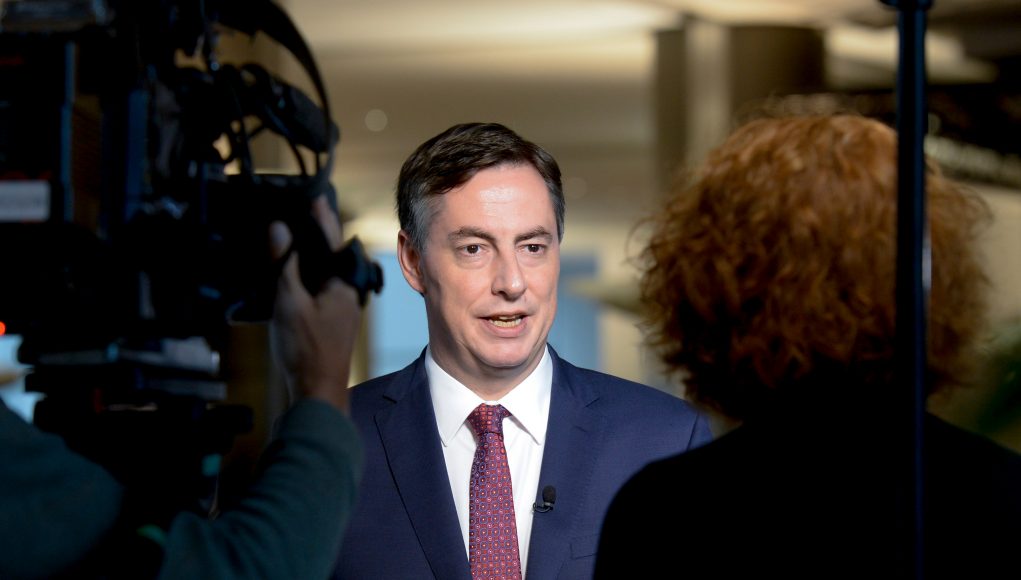European Western Balkans: McAllister – Rule of law and fundamental rights priority for Serbia
The European Commission adopted last week its annual Enlargement Package, including seven individual reports, assessing the implementation of the European Union’s enlargement policy which is based on established criteria and fair and rigorous conditionality. The European Western Balkans spoke with David McAllister, German MEP, Chair of the Committee on Foreign Affairs and EP’s Rapporteur for Serbia on this topic.
European Western Balkans: How do you see the European Commission report on Serbia? Are you satisfied with the assessment of progress?
David McAllister: I read the European Commission’s report on Serbia from the first to the last page and I believe that the assessment is very balanced and accurate. The report rightly underlines Serbia’s position as one of the two frontrunners in the enlargement process. The government in Belgrade has adopted important economic reforms that continue to produce results. Addressing and implementing reforms in the area of the rule of law and fundamental rights remains the most important task for Serbia. Moreover, Serbia and Kosovo have to substantially deepen their engagement in the Dialogue.
EWB: Despite much talk about the importance of media freedom, the latest report, just like the last one, claims that no progress has been made in this area. It also states that “this lack of progress is increasingly a matter of concern”. Do you agree that the EU institutions should do more to address this issue?
DM: The European Commission’s report is very clear on the lack of progress in guaranteeing media freedom. Moreover, the 2018 World Press Freedom Index, which “Reporters without Borders” presented this week, confirmed the Commission’s assessment – Serbia fell from position 66 down to 76. This issue remains, also for the European Parliament, indeed a serious matter of concern.
EWB: The Serbian government is not satisfied with the assessments of progress made in normalization of relations with Kosovo in the EC reports for Serbia and Kosovo. How do you see the state of the normalization process?
DM: A comprehensive, legally binding normalisation agreement is urgent and crucial so that Serbia and Kosovo can advance on their respective European paths. In this respect, I agree with the assessment of the European Commission that Belgrade and Pristina have to substantially deepen their engagement in the Dialogue. The initiative of President Aleksandar Vučić to launch an internal Serbian Dialogue on the future of the relations with Kosovo is very important. Without the effective and comprehensive normalisation of their relations through the EU-facilitated Dialogue there cannot be lasting stability in the region.
EWB: How do you see the statement by French President Macron about the need for reforming the EU before further enlargement in possible? Could it threaten the EU prospects of Western Balkan states?
DM: There is a broad consensus among the EU member states as well as in the EU institutions that our Union must be stronger and more solid, before it can eventually be bigger. However, I am convinced that the reform of the EU and the accession process are not in any kind of conflict. They can go hand in hand. The “Western Balkan six” have a clear and firm EU perspective. The door of the EU is open to further accessions when the individual countries have met the criteria.
EWB: There were negative reactions in some German media about the recommendation to open EU accession negotiations with Macedonia and Albania. Do you think that Germany might became more careful with supporting enlargement in the future?
DM: The Western Balkan countries remain on the German foreign policy agenda. Chancellor Angela Merkel is dedicated to support the Western Balkans in finding sustainable solutions for the challenges the region faces. In Berlin and especially among the responsible members of the German Bundestag, I do not witness a decrease of support for the EU’s enlargement policy as such. Nevertheless, politicians in Berlin pay attention to the fact that candidate countries meet the well-established membership criteria and implement comprehensive reforms in crucial areas.



